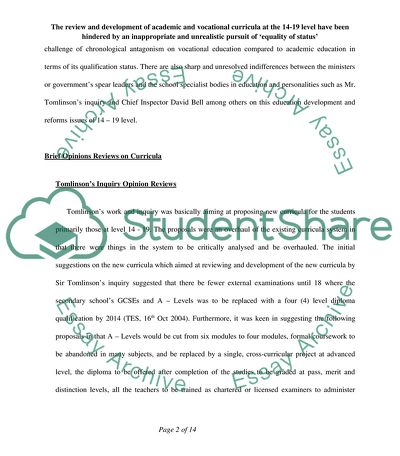Cite this document
(“Development of Academic and Vocational Curricula Essay”, n.d.)
Retrieved from https://studentshare.org/education/1536873-the-review-and-development-of-academic-and-vocational-curricula-at-the-14-19-level-have-been-hindered-by-an-inappropriate-and-unrealistic-pursuit-of-equality-o
Retrieved from https://studentshare.org/education/1536873-the-review-and-development-of-academic-and-vocational-curricula-at-the-14-19-level-have-been-hindered-by-an-inappropriate-and-unrealistic-pursuit-of-equality-o
(Development of Academic and Vocational Curricula Essay)
https://studentshare.org/education/1536873-the-review-and-development-of-academic-and-vocational-curricula-at-the-14-19-level-have-been-hindered-by-an-inappropriate-and-unrealistic-pursuit-of-equality-o.
https://studentshare.org/education/1536873-the-review-and-development-of-academic-and-vocational-curricula-at-the-14-19-level-have-been-hindered-by-an-inappropriate-and-unrealistic-pursuit-of-equality-o.
“Development of Academic and Vocational Curricula Essay”, n.d. https://studentshare.org/education/1536873-the-review-and-development-of-academic-and-vocational-curricula-at-the-14-19-level-have-been-hindered-by-an-inappropriate-and-unrealistic-pursuit-of-equality-o.


